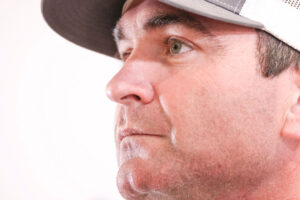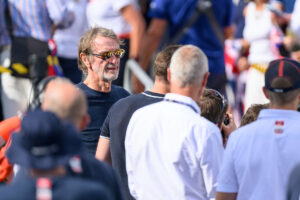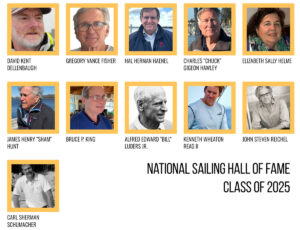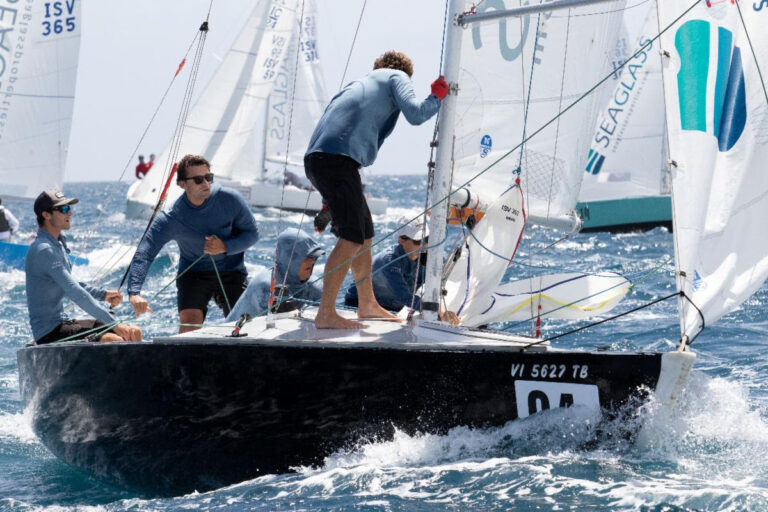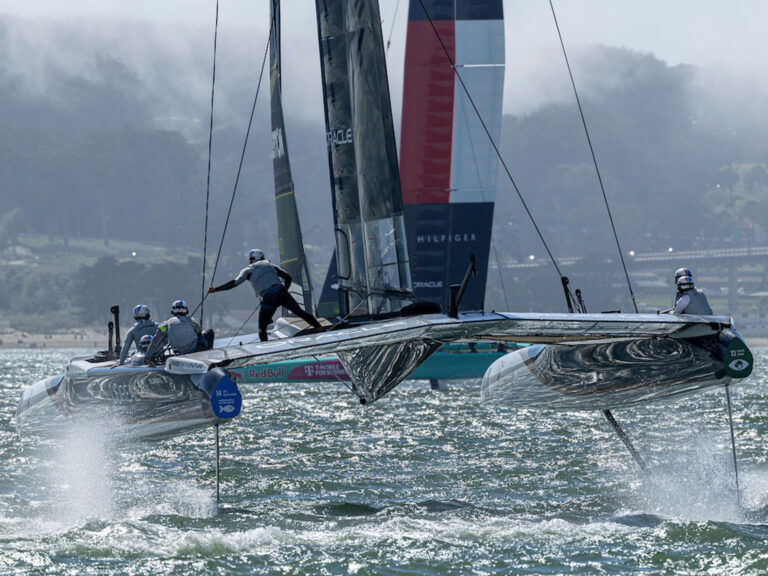If you spend enough time offshore you’re bound to end up dealing with a horrible evening. Last night was our turn. When the B Watch came on last night at 9 o’clock conditions were difficult. It was a very dark night with no moon and starboard quarter waves and it was impossible to see the horizon. We had a full main, mizzen staysail, and a big gennaker up and the wind was blowing between 25 and 30 knots. We were steering by the heading display on the mizzenmast and by wind direction. I got on the wheel first and promptly lost the plot, vertigo, spins, the whole deal. Our course was supposed to be between 85 and 95 and I was all the way up to 140 before our skipper, Tim, who with 11 years of experience knows the boat better than anyone else, rescued me. After he settled the boat down I got back on the helm and wrestled with it for about 30 minutes before I asked to hand it off to Dave, who lasted about the same amount of time before he handed off to the mate, Steve. It was hard to keep from rounding up, and it was hard to keep from going too low and there was absolutely no room for error. When we first started the race, Steve, the mate had described steering Sariyah as “driving a truck with flat tires.” By the middle of this particular watch, we’d added on to the description bit by bit, and it ended up being “like driving a truck with flat tires on ice with bad windshield wipers and country music on the radio.” The description still doesn’t do it justice. We struck the mizzen staysail at some point during that time, which made the driving marginally easier, but the wind and waves increased a bit more and Tim got back on the helm. He lasted about 20 minutes before the s— hit the fan as he bore down too deep and the kite collapsed. When the kite filled again, it detonated, sending a big chunk of itself through the headstay and forestay and wrapping around the furled genoa. All hands that were on deck went racing forward to try to get it down and at first, it looked like an impossible task. The remnant’s of the sail’s foot were dragging alongside to leeward, it was wrapped up in the headstay and the wind seemed to pick up even more. Bill, Dave, and I went out to the bowsprit and tried to wrestle the kite around the headstay while others, including our stewardess, Alex, tried to pull the sleeve down over what was left of the sail. After what seemed like many minutes, but was probably a lot less, we got the sail around the headstay and the crew aft started to pull down the furling sleeve. Before we could lower the sail we had to get the foot out of the water, which was stunningly difficult. The foot kept filling with wind and waves and we all had to let go of what we’d tried so hard to get in whenever it did, rather than be pulled over the side or into the air. In the middle of all that, the boat crash-jibed and the boom went swinging across the deck at a murderous speed. Everybody stayed clear and were ready as the boom swept back across again. After more struggle we collected the kite and pulled the whole mess down onto the deck. After about 20 minutes, everything-sheets, guys, spinnaker pole, and the obliterated kite-were all put away and we were settled enough to roll out the yankee and start sailing again. We all gathered in the cockpit, counted heads, and did what people do after such a high-stress experience. We talked loudly, told tales about what we saw and did, and told ourselves it could have been much, much worse. “I’m glad I’m the one who did it,” said Tim, “because I would have been screaming if any of you had. We’re going to regroup now, stay with the yankee still sunrise, and then start going fast again.” After a sleep that seemed far too short, but was five hours long, I came on deck at 6 a.m. to find that we had, indeed, regrouped. The genoa was poled out to weather, the yankee was to leeward, we had a full main and mizzen up, and were heading 080 degrees at 11.5 knots. Tim still hadn’t gone to sleep and was in the galley making French toast and bacon. I had a bit of both and took the wheel from Kevin. Since the sun has been coming up at 4 a.m. for the past two days, we changed ship’s time to three hours ahead. Tim’s watch got an extra hour of duty and mine one less. Everybody was a bit quiet and a lot tired, but the steering was so much easier, as was the sea state, so it was a lot more relaxed environment. We got the latest position report a few minutes ago, and it was good news. Despite ourselves we’d managed to go from fifth to third and had gotten ahead of our chief rival, Whisper. That news made the night’s carnage fade like a distant memory, which will be refreshed when we’re all at the pub in Cowes. Less than 2,000 miles to go now and we’re set up well for the next low-pressure system that’s winging our way at 28 knots. Our weather guru thinks that we’ll be booming along, deep reaching in 35 knots of wind while our competition to the north and east hits a windless wall. We hope he’s right and continue to push the boat hard.
